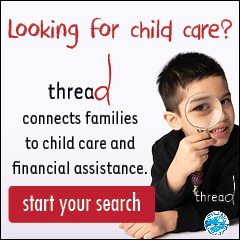CHOOSE A CAMP CHECKLIST
Here are some essentials to look for when evaluating camps
Find the camp that matches your child’s interests.
What kinds of activities does he or she like? Is the focus of the camp something they’ll enjoy for a week, a month or longer? If your child doesn’t have a particular interest, look for a camp that offers a variety of activities. Chances are something will click.
Stretch boundaries.
A camp that offers activities that pique your child’s interest should be considered when researching options, but avoid choosing a camp that does not give your child a chance to try new things and learn. A well-balanced camp experience should be a top priority, one where children have the freedom to do what they enjoy and the chance to branch outside of their comfort zone.
Check out the camp’s philosophy or mission.
Does it align with your family’s values? Is it more cooperative or competitive? Is it faith-based?
Consider the location, and its impact on you.
Is getting to and from the camp convenient? Consider if the camp is too far away for you to drive your child there every day/week.
Can you afford it?
Ask about the base cost of camp as well as any extra costs, such as lunch, field trips or equipment that you’d have to purchase for your child to participate. Some will offer incentives, such as scholarships, so don’t be shy about asking if money is an issue.
Check out the counselors.
What is the ratio of counselors to campers? The ratio should be higher for younger age groups – such as 5- and 6-year-olds – who will likely need more supervision than 12- and 13-year-olds. What kind of training or certification does the camp staff have? Are they trained in CPR and first aid? What background checks do counselors undergo? How do they deal with conflict or a discipline problem?
Check references.
Quality summer camps will have dozens of parents and children willing to sing its praises. Ask camp directors if there are parents in your area you can speak with to learn more about what they thought of the camp and their children’s experience.
Will my child disconnect from technology?
It is a well-known fact that children spend too much time staring at screens today. Many summer camps do not allow children to bring cell phones or have access to computers and video games while at camp. While at first children can feel isolated, by the end of camp they will have had free time to enjoy nature, discover themselves and make new friends without the influence of technology.
Consider nutrition.
Mystery meat, pizza and nachos are called to mind when many people think about stereotypical camp food. But, many camps offer healthy meal choices filled with fruits, vegetables and whole grains. Plus, if your child has a special diet, you can find summer camps that cater to gluten-free and other allergy/special dietary requirements.
Start with a test drive.
If you or your child is nervous about heading to summer camp for the first time, test the waters. Sign up for a short session to start with, and if your child enjoys the experience, you can plan for a longer, more immersing experience next summer.









